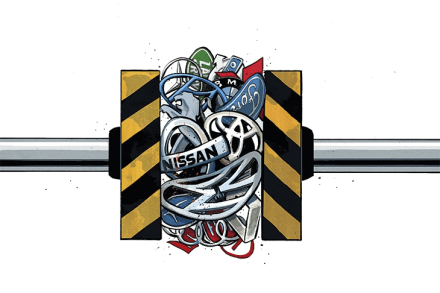Have we seen the last of the Wagner Group?
Three weeks after marching on Moscow, the Wagner Group has seemingly been withdrawn from the battlefield in Ukraine, according to the Pentagon. Pentagon press secretary Patrick Ryder said there was evidence to suggest that the 25,000-strong mercenary group was not ‘participating in any significant capacity in support of combat operations in Ukraine’. The Pentagon’s statement follows weeks of rumours and speculation about how successfully Vladimir Putin is dealing with the fallout of Yevgeny Prigozhin’s rebellion. Many Kremlin-watchers expected the President to crack down hard on the Wagner leader – and were subsequently puzzled when Prigozhin was allowed to nominally retreat into self-imposed exile in Belarus. The Kremlin’s reaction to Prigozhin’s mutiny





















